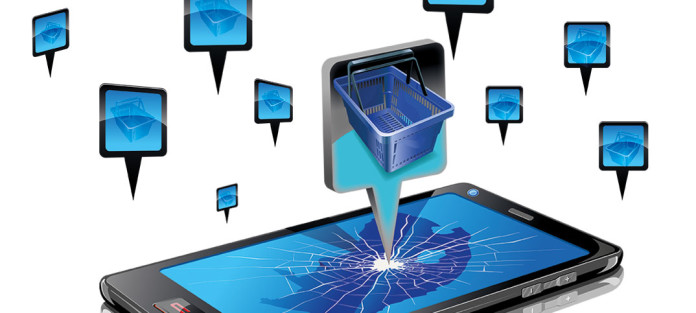Jason Finch continues his look at location-aware technology and the future of the traditional cash & carry.
In my first job application after university, I had to enthuse about connected technology putting thousands of people out of jobs, killing off entire sectors if they failed to reinvent their business models. In the 1990s, I picked up a reputation for being ridiculous enough to predict that the web and e-commerce would accelerate the death of town high streets.
In the wholesale sector, as with high street retail before it, while some businesses are starting to embrace modern connected technology, it looks like there could be high-profile casualties: well-known names are at risk of simply disappearing over the next decade if they don’t adapt quickly enough.
Transform for the digital age: It’s more than just putting your catalogue online
Transforming your business for the digital age does not mean putting your catalogue online and letting people order over the web. Nor is it throwing a few beacons down the aisles of your depots and expecting that will boost your sales.
Instead – assuming the fundamentals of your customer service, product availability, price and range are excellent – you should go on to reappraise the way customers want to shop with you. Some of your customer-related processes might need major change in light of both new technology and rising customer expectations that are being set by their interactions in their personal life with leading online B2C businesses.
If your cash & carry business is growing without click & collect, your market share won’t start to plateau and then fade simply because your business doesn’t evolve its trading model soon – unless of course local competitors do.
Some high street retailers are scared of their shops becoming showrooms. Depots should embrace the idea. If you want people to want to spend more time in your depot, extend focus on new product development and supplier-sponsored ‘theatre’.
There’s a massive shift towards fresh and local produce from smaller suppliers that find it tough to get their products seen and tested. Create mini-shops for them, giving them easier access to retailers and chefs.
Make the depot a destination for more than just wandering the aisles buying the regular stock: that part can be done online and collected. It’s possible to have existing cash & carry staff picking online orders without significantly increasing overall business costs.
Offer specialist product or ranging advice, create areas for sharing helpful information and ideas.
There’s space for depots that are purely click & collect centres, too. Create a fantastic web presence with a truly clever selling engine driving the trading platform, optimise pick-and-pack processes and have your customers collect their orders from you.
Online is better: Your customers have less time than consumers do
The future is surely not about peppering a vast depot with technology that tracks customers walking around it, offering them things as they go, expecting them to carry on loading stuff onto carts they drag around. People increasingly shop where and how it’s most convenient for them: the high growth in the use of wholesaler transactional websites is plain enough evidence of this.
You can do online everything that you might do in your depot with targeted promotions and beacon-based upsell. So be very careful of getting sucked into adding any technology on top of a flawed business model. Address the bigger changes your business may need. Experiment with new models.
Your customers have even less time than many consumers have these days. In addition, younger people are increasingly the ones replenishing the stock and they expect modern ways of operating. Time away from the business to stock up is no longer essential and making them spend more time away than necessary will be a killer. Beacons won’t help to change that.
Over the coming years, click & collect and delivered wholesale will grow at the expense of those depots still expecting customers to roam aisles. C&Cs are here to stay, but they have to switch from cash & carry to click & collect and create distinctive new reasons for people to visit the depot.









If you are going for best contents like myself, just visit this web page daily since it provides quality contents, thanks